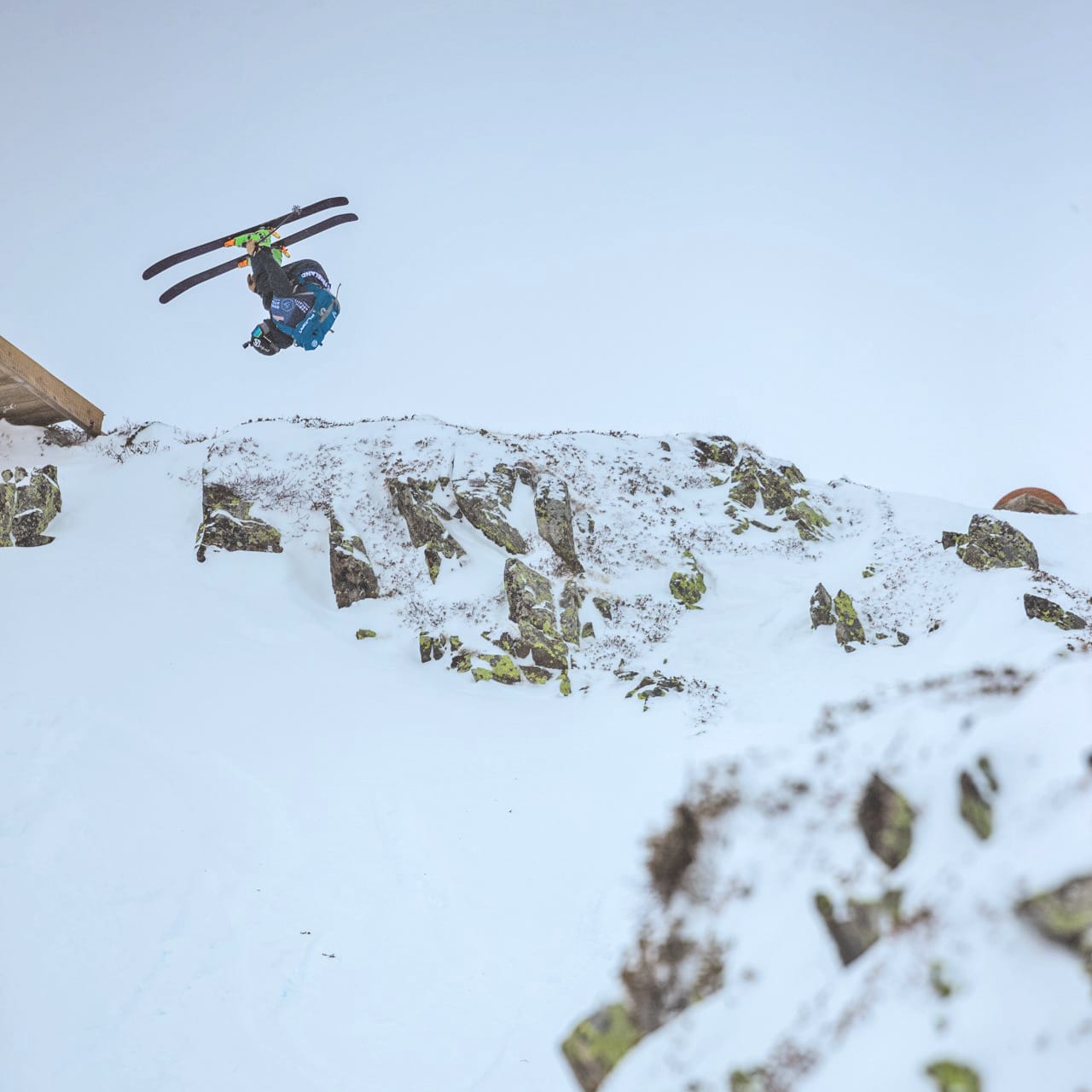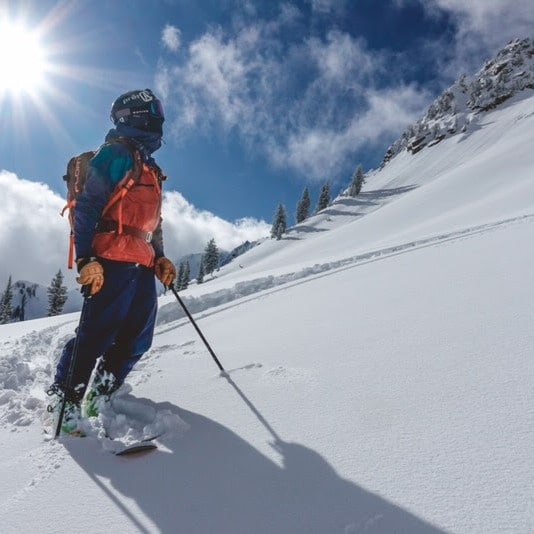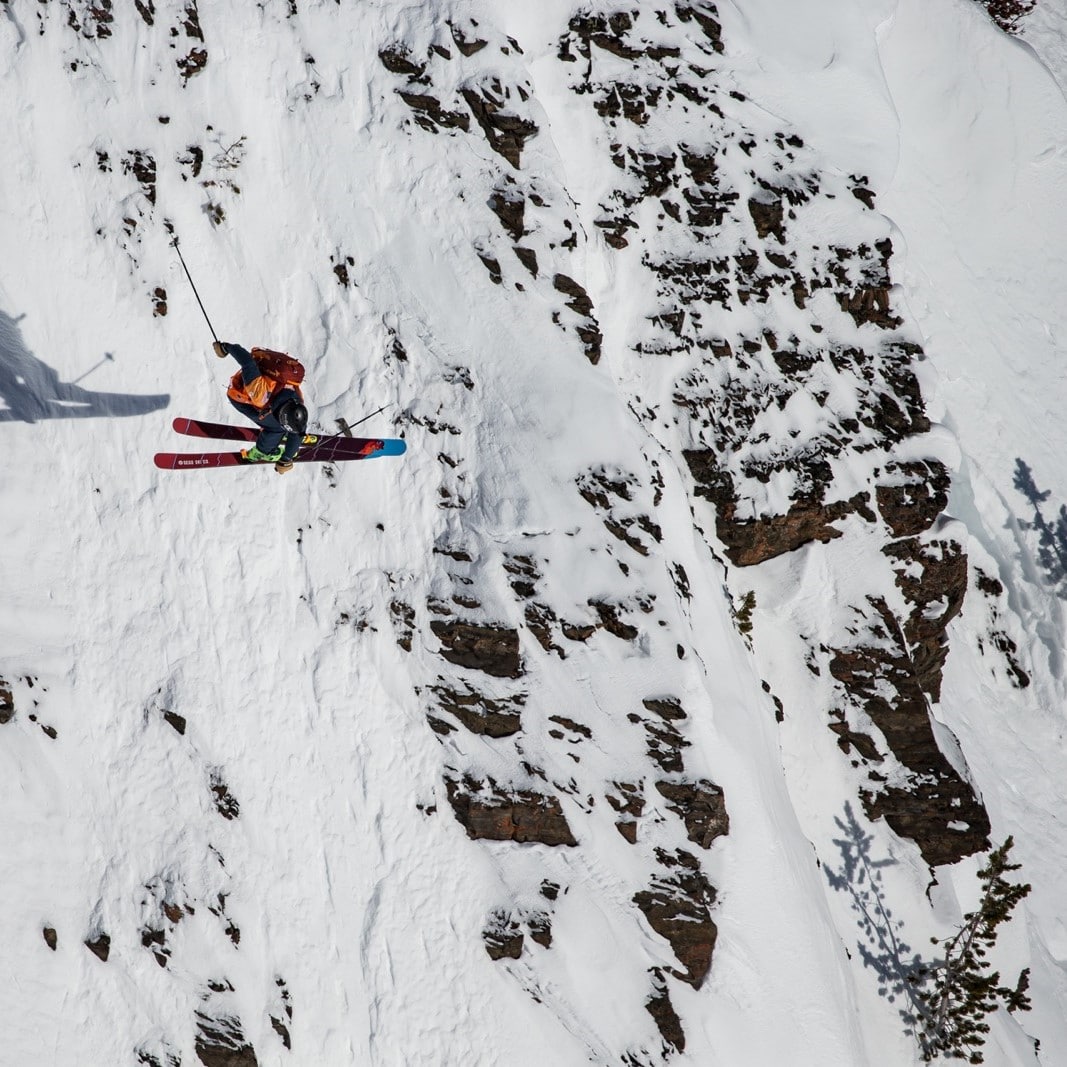As Blue Harvest evolves, we continually strive to bring the most effective product to our customers. Collaborating with athletes provides us the opportunity to test new products with people that are pushing their bodies to the limit on a daily basis. When we began this research and development strategy, we reached out to athletes that embody what Blue Harvest stands for. During our first conversations with Isaac Freeland, rookie freeskier on the Freeride World Tour, it was clear that he was laser-focused and eager to progress his skiing as he embarked on tour. While we recognized that Isaac is a true master of his craft, we couldn’t have predicted that he would go on to win the Freeride World Tour as a rookie, thus becoming the 2020 Freeride World Tour Champion.
Roughly a week before the Covid-19 lockdowns were effective in the US, we caught up with Isaac over the phone while he was in Fieberbrunn, Austria in between events on the tour. At the time, Isaac was a top-three contender having just placed second in the Andorra, Italy event. After our conversation, he ended up placing second in the Fieberbrunn, Austria event, and took over the leaderboard with the most points on the season. This ended up being the last event of the season due to Covid-19 and the rankings were taken as final for the tour. Isaac was sitting first overall resulting in him becoming world champion for 2020.
Our conversation prior to the event in Fieberbrunn, Austria:
Thanks for taking the time to connect over the phone today, man! I’d first like to start by congratulating you on an insane performance in Andorra, Italy. What part of the world are you in today?
Thanks, dude! That was awesome to be able to put down a run I’m really proud of. I’m in Fieberbrunn, Austria right now but have traveled through four different European countries over the past few days. The tour provides lodging for all of the athletes which makes it easy for all of us to hang out and get to know other athletes from all over the world. Plus, it can turn into a party after the events! There’s 4 skiers from Utah on tour with me now, so that’s awesome, but getting to know everyone else has been really cool.
I’m sure you guys have a fun time after those events with the crew on tour. To that point, it seems like the group on the Freeride World Tour is very collaborative. While you may be competing, it looks like everyone is supportive and wants to see each other succeed. In that sense, it’s not like traditional sports. I know you have a ski racing background, which is obviously more structured. What would you say the biggest difference is?
Well I actually haven’t raced since sophomore year of high school. It’s similar in that there’s still a start gate, but the whole competition is very different. And yeah, the collaboration between athletes is something we’re very used to and forget you don’t see it as much in other sports. There’s a lot of risk management in our sport and it all comes down to wanting your friends to express their abilities in a safe manner so you can continue to ski with them in the future. No one wants to watch their friends fall and possibly become injured. Another difference from racing is not having a coach. Although, we did have a coach in high school through our freeride team that helped guide our skiing technique and decision making, providing us with a solid foundation.
It’s really cool to see the evolution of skiing and competition like that. We are flatlanders here in the midwest and most people around here only know of the Olympic competitions and skiers like Bode Miller or Lindsey Vonn. Under the assumption that most of our customers have no idea what the Freeride World Tour is, can you explain exactly what it is and how you qualified?
So basically the tour picks a mountain face for the event somewhere around the world. We’ll get to the location a few days before and scout out the terrain but can’t actually ski the terrain. I’ll use binoculars to look at the different rock faces, etcetera. From there we have the freedom to choose which route, or as we call it line, that we’re going to ski for the competition. The safety team, as well as the judges, will ski the terrain before us so it’s up to par safety-wise. Then on the day of the event, a starter will also ski it before us to make sure the snow is skiable and up to standard. Then we have the freedom to ski whatever lines we want to. It’s not like ski racing where there is a defined track. Judging is then based on line, technique, fluidity, and style. I qualified for the FWT by competing in the Freeride World Qualifiers. It’s a similar style to the Freeride World Tour but usually on less gnarly faces that are more forgiving. That said, the competition is equally fierce. At the end of the season, the Freeride World Tour replaces its lowest-scoring riders with the top riders of Freeride World Qualifiers.
There has to be some serious nerves leading up to that. What does a normal day of preparation look like for you leading up to an event? Are you the type of athlete that’s listening to tunes to calm the nerves?
No music while I ski, it can be a distraction for me. Lots of others do though. The day of the comp I’m scoping out what line I want to take. It can be pretty nerve-racking making those decisions. That being said, I know I’m as prepared as I can be from my training and I’m just pumped to be able to ski some awesome terrain.
-

Photo: Courtesy of Freeride World Tour
Regarding training, in the offseason I know you work on tricks but what does the training look like in the gym?
I try to stay active, rock climbing, hiking, skating. In the gym, I love the stationary bike to keep the blood flowing in my legs. The months leading up to competition I’ll do full body weight training. You really need to stay tight when you’re skiing, in the air. Core strength is very important. Skiing is a full-body workout even though it’s primarily legs.
What’s your recovery process like?
Well, immediately after an event I’m not really worried about how I’m feeling, it’s more a time to hang with the other skiers and celebrate the day — unwind. It’s more the day after that I start to focus on recovery, but I don’t overthink it. If I’m feeling aches and pains I’ll use the Blue Harvest comfort balm which has been really helpful. If I’m really sore I’ll take a day off skiing.
Listen to your body and don’t push it if it’s not necessary.
Exactly.
Earlier you were talking about how you try to get outside as much as possible. While the gym is important, it seems like you like to train outside as much as possible. What advice would you give to someone looking to pursue a more active lifestyle?
Find an activity that makes you happy. I have friends who run and see it as a chore but you don’t have to do something that’s not fun. Go hike somewhere to watch a sunset, take your dog somewhere cool. Have fun with it.
Right, find whatever activity is going to get you out of the house and commit to that.
I think people overthink it, just get out of the house and have some fun! That’s the best way to stay active.
Amen to that. Last question for you, at third place in the season rankings what’s your mindset going into the final events?
Keep on doing what I’m doing. Now that I’m a top-three contender, there’s a bit of a target on my back but I’m just grateful to be here and I’m not overthinking anything.
-

Photo: Courtesy of Zander Kroon
